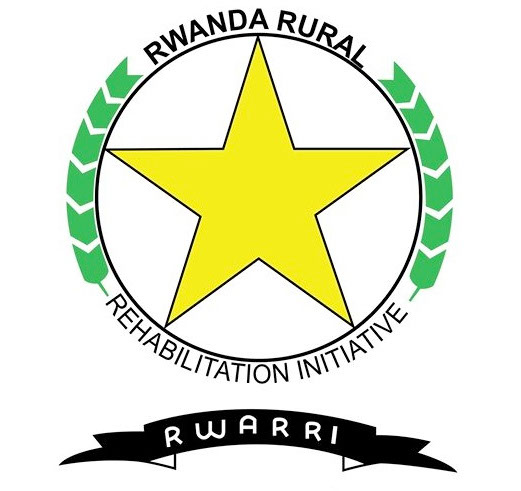As of 28th February 2022, Rwanda counted 127,269 refugees. Congolese made up 60.65% of the total refugee population in Rwanda, while Burundians were 39.09%. Urban refugees comprised 0.33% of the total refugee population; Children comprised 48% of the registered refugee population, while women and Children were 75%. The average family size was 3.7 individuals (Ministry in Charge of Emergency Management-MINEMA, 2022).
Refugees depend on humanitarian assistance. Reducing dependency on humanitarian aid and achieving graduation from poverty through socio-economic inclusion and the promotion of self-reliance is at the heart of the United Nations High Commissioner for Refugees-UNHCR’s mandate and the Government of Rwanda’s commitment (MINEMA, 2021).
The Government of Rwanda (GoR) and UNHCR Rwanda aim to ensure by 2030 that all refugees and neighbouring communities living in Rwanda can fulfil their productive potential as self-reliant members of the Rwandan society and contribute to the economic development of their host districts.
Within the background mentioned above, Rwanda Rural Rehabilitation Initiative (RWARRI), under partnership with the Deutsche Gesellschaft für Internationale Zusammenarbeit- GIZ, implemented a project named Economic Inclusion of Refugees and Host Communities- ECOREF to equip the Technical and Vocational Education and Training Programme-TVET graduates with tool kits and provide equipment to existing enterprises to boost jobs creation, support refugees and host communities to graduate from poverty and ensure their self-reliance. The project targeted beneficiaries are TVET graduates who completed six months of TVET courses financed by GIZ and the existing enterprises that GIZ supported through different capacity buildings for TVET graduates, those who graduated in the year 2020, named TVET1, and TVET graduates for the year 2021, called TVET2.
Reducing food lost or wasted means more food for all, less greenhouse gas emissions, less environmental pressure, especially on water and land resources, increased productivity and economic growth, and more sustainable societies.
Statistics revealed that up to 40 per cent of the total food produced each year is lost or wasted in Rwanda. This represents 21% of the comprehensive land use, 16% of its greenhouse gas emissions, and accounts 12% loss to Rwanda’s annual gross domestic product.
Based on these recent studies, there is no doubt that this is a severe threat to the country’s economy, while 19% of the population does not have enough to eat. Therefore, addressing this challenge is essential to building a regenerative and resilient food system that helps mitigate climate change, reverse nature loss, and deliver positive outcomes for both producers and consumers.
In this regard, it is paramount to organize and train a task force that is a champion team with members from relevant organizations and institutions in both the public, private, and non-profit sectors to take this issue as their own by looking for a long-term solution. Thus, it is necessary to have the “Food Waste Reduction and Management Project” in Rwanda. Different organizations/ institutions’ focal points sitting in the task force use their experiences to guide, advise, and orient the cities in food waste reduction and management. The task force’s expectation is to produce recommendations for cities at the end of this project and report to their respective institutions/organizations recommendations and their implication in food waste reduction and management. The team will embark on a solid plan to reduce and eliminate food waste through organizing institutions into a food waste task force; organizing a food waste inspection series by the task force; training the task force members on food waste management and reduction in food markets to greening the city; facilitating the development of the action plan for the taskforce focusing specifically on food markets; creating awareness on food waste reduction among public institutions and markets; and training of food retailers operating in food market.
The Alliance for Restoration of Forest Ecosystems in Africa (AREECA project) got funds from the International Climate Initiative (IKI) of the German Ministry of the Environment. The AREECA project aims to increase the socio-economic, ecological, and climate-related benefits of Large-scale Forests and Landscape Restoration in Cameroon, Kenya, Malawi, and Rwanda.
The programme is implemented jointly with collaborative partners under the leadership of the Deutsche Gesellschaft für Internationale Zusammenarbeit (GIZ) GmbH. The partners include the African Union Development Agency (AUDA-NEPAD), the Food and Agriculture Organization of the United Nations (FAO), the International Union for Conservation of Nature and Natural Resources (IUCN), the World Resources Institute (WRI), the World Bank Group and the World Wide Fund for Nature (WWF)
In Rwanda, the project is implemented by the International Union for Conservation of Nature- IUCN in partnership with the Rwanda Forests Authority- RFA and Rwanda Rural Rehabilitation Initiative- RWARRI. The AREECA project operates in the Rwimiyaga and Karama sectors of the Nyagatare district and the Nyamugari, Mpanga, Nasho, Nyarubuye, and Kigarama sectors of the Kirehe district in the Eastern Province.
The project consists of indigenous tree species seedlings production, forest enrichment, afforestation, plantation along roadsides, distribution of fruit trees, distribution of improved cooking stoves, and forest cadastre in the mentioned locations.
The RWARRI’s role in the project consists of community mobilization, capacity building, and awareness-raising among local leaders and community members.
World Food Programme (WFP) initiated the Farm to Market Alliance (FtMA) in 2016 to promote the sustainable pro-smallholder agricultural value chain of maize and beans, intending to increase smallholder’s income and foster commercial viability for private sector actors engaged in the Alliance. Maize is one of the priority crops identified by the government for support in the strategy for agricultural transformation. Maize and Beans play a significant role in Rwanda for food security and commercial potential. Therefore, enhancing the maize and beans value chain represents an accurate and precise option for achieving farmers’ livelihoods.
RDO and RWARRI implement the Farm to Market Alliance (FtMA) project in 24 districts to support 83,747 farmers grouped into 247 cooperatives to raise farmers’ production, reduce post-harvest losses and increase marketable surplus.
The project activities include:
- Training of farmers in good agriculture practices (GAP) and post-harvest handling (PHHS),
- Linking farmers’ organizations with viable markets through contract farming with six big buyers; AIF, MINIMEX, EAX, SARURA, RGCC, and Gorilla Feeds.
- Support for post-harvest equipment acquisition,
- Capacity building of cooperatives in good governance and financial management and
- It is linking farmers’ organizations to financial institutions for input and output loans.
The project is being implemented by RWARRI in 10 districts countrywide, Ngoma, Rwamagana, Gasabo, Rulindo, Gakenke, Burera, Gisagara, Huye, Nyaruguru & Nyamagabe with 125 cooperatives regrouping 50,177 farmers, including 24,091 females.
RWARRI receives a grant from FONERWA to implement a project entitled “Improving the smallholder farmers’ livelihoods and climate resilience by using green technologies in Ngoma district.” The project was implemented in partnership with the Ngoma district through the government Programme for Small-Scale Irrigation Technology (SSIT) led by the Rwanda Agriculture and Animal Resources Development Board (RAB). The project operates in the Zaza and Mutenderi sector of the Ngoma district to establish an irrigation system by setting the solar pumping system and constructing the water reservoirs to improve livelihood and climate resilience for vulnerable groups of smallholder farmers in the community coping with climate change.
Through this green technology project, farmers receive Climate-Smart Agriculture(CSA), gender mainstreaming and social inclusion, organizational skills, and bookkeeping. The project establishes the solar pumping systems, constructs water storage of 500m3 on two sites, and sets up water irrigation networks. The project provides agricultural inputs to farmers for horticultural production, provides fruit seedlings to the farmers, and organizes farmers’ linkage sessions with agro-dealers, buyers, and Financial Institutions.
The project targets 1,500 smallholder farmers with 600 women and 300 youth to produce high-value crops and increase their income using durable and adequate green technologies infrastructures to irrigate 20 hectares.
Following a request from the Ministry of Gender and Family Promotion (MIGEPROF), Rwanda Rural Rehabilitation Initiative (RWARRI) implements the Gender Climate Change and Agriculture Support Programme (GCCASP). The project runs in Ngoma district with World Food Program (WFP) funds through the joint Programme Rural Women Economic Empowerment (JPRWEE).
The project aims to support a hundred (100) smallholder women farmers, gathered into two women-dominated cooperatives, build resilience and cope with and adapt to climate change in the Sake sector, Ngoma district in Western province. The project is scheduled to run from April to September 2021.
The main objectives of the project are:
- Promotion of High Iron Beans (HIB) varieties planting to reduce malnutrition and increase farmers income (including post-harvest equipment distribution and demonstration plots establishment)
- Maintain existing irrigation units for both cooperatives to produce in all seasons (including solar system irrigation setting – up for two sites)
- Capacity building in thematic areas of Gender, Agriculture, and Climate Change (involving the creation of cooperatives platform)
The “Embedding Integrated Water Resources Management in Rwanda –EWMR project” is a three-year project from May 2019 to June 2022, funded by the Embassy of the Kingdom of Netherlands (EKN) and implemented by the Rwanda Water resources Board (RWB) with Technical Assistance (TA) from the International Union for Conservation of Nature (IUCN) and its consortium partners including the Netherlands Development Organisation (SNV) and Rwanda Rural Rehabilitation Initiative (RWARRI). The project seeks to increase livelihood and conservation benefits in Sebeya (& other) catchments from restoration and improved land management.
The Sebeya River originates in the mountains of Rutsiro District along the Congo Nile Divide, in Western Rwanda. The river flows for over 110km with a catchment area of 286km2 spanning the districts of Rutsiro, Ngororero, Nyabihu, and Rubavu in the Western Province.
The Sebeya River remains very important to Western Rwanda, where smallholder farmers use this river for irrigation, a source of drinking water for many households, and hydroelectric power at the Gihira Power Plant in Rubavu District.
For the past twenty years, hundreds of people in the Western Province including in Sebeya catchment have been displaced and communities massively overwhelmed by Sebeya River floods, a result of poor agriculture practices, deforestation, and unsustainable mining practices upstream to name a few.
In order to attain healthy and productive environments, a landscape approach that identifies and builds on the interdependencies between landscape status, ecosystem service supply, agricultural production, governance, and human wellbeing is required.
The overall goal of the project is to improve catchment management contributing to increased resilience of communities and landscapes to the impacts of climate change and other drivers.
In this regard, the EWMR is a holistically integrated program, focusing on community engagement in work packages that target to:
- Reduce land and soil degradation, river sedimentation, and flooding.
- Improve incomes and resilience based on sustainable use of landscape resources.
- Empower landscape governance and management institutions.
- Provide evidence-based guidelines for the landscape approach.
The EWMR project is founded on a community participatory-based approach, relying on participation of the local communities in Sebeya catchment in planning, and implementation of the catchment restoration activities.


